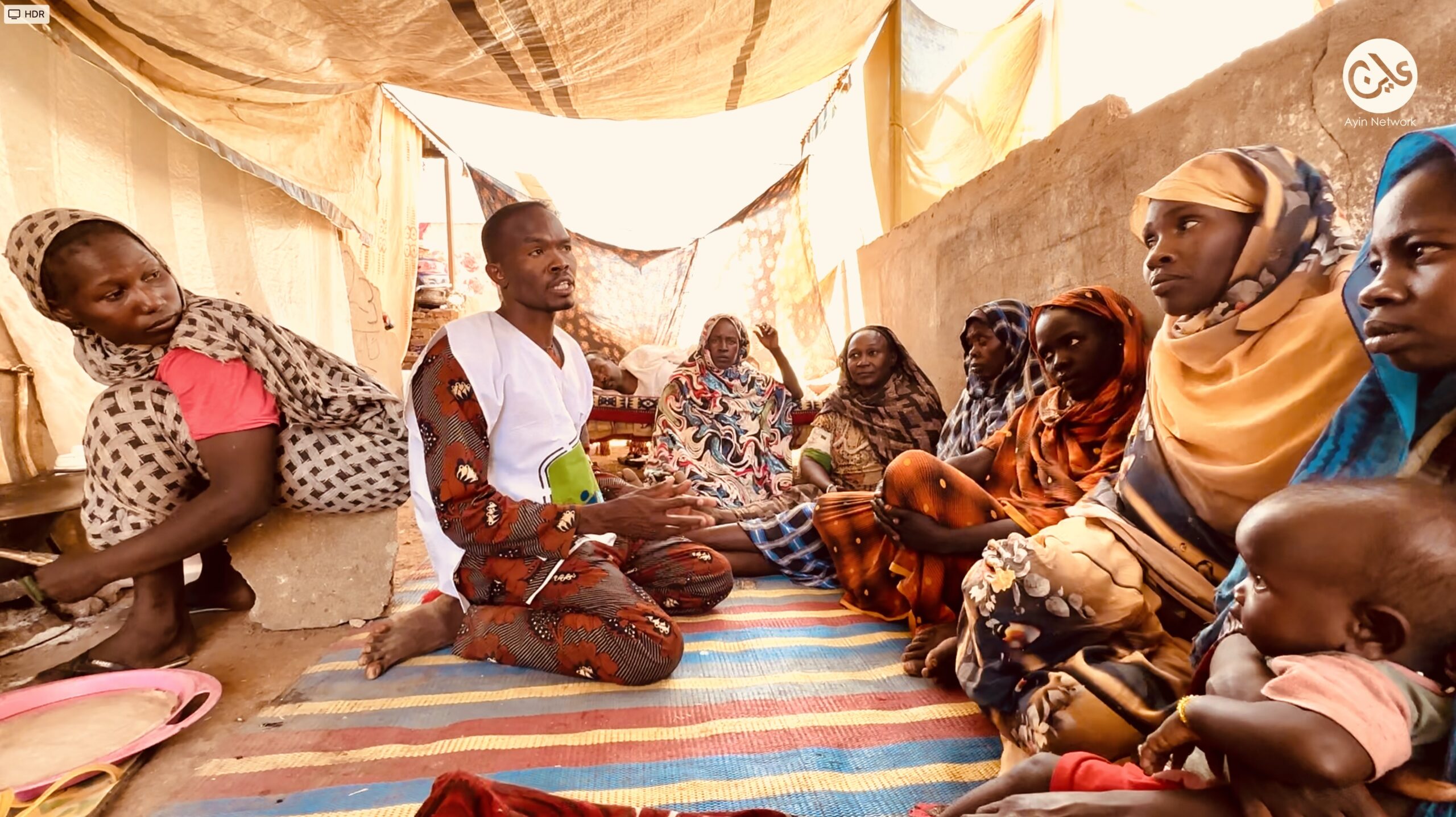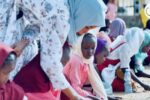The new aid enigma: Emergency Response Rooms
1 November 2024
As more Sudanese civilians face displacement from the conflict—whether in eastern Al-Jazeera in central Sudan or El-Fasher in North Darfur, western Sudan—reliance on local volunteers to provide support increases. Since the outbreak of war, the voluntary, grassroots groups known as the Emergency Response Rooms (ERR) have acted as lifelines for those affected by the conflict. “We are in a dire state,” says Sarah Abass, who fled Sennar State earlier in the year and is now residing in a shelter in Gedaref, eastern Sudan. “But our situation would have been ten times worse if it were not for the support of these people [the ERRs]. In fact, without their help, I may not be speaking to you right now.”
The outbreak of military clashes between the national army and the paramilitary Rapid Support Forces (RSF) in mid-April last year has triggered the largest displacement crisis in the world, the UN reports. The withdrawal of many international aid organisations due to the high insecurity levels and the blockade of humanitarian aid shipments by both warring parties has exasperated the situation further.
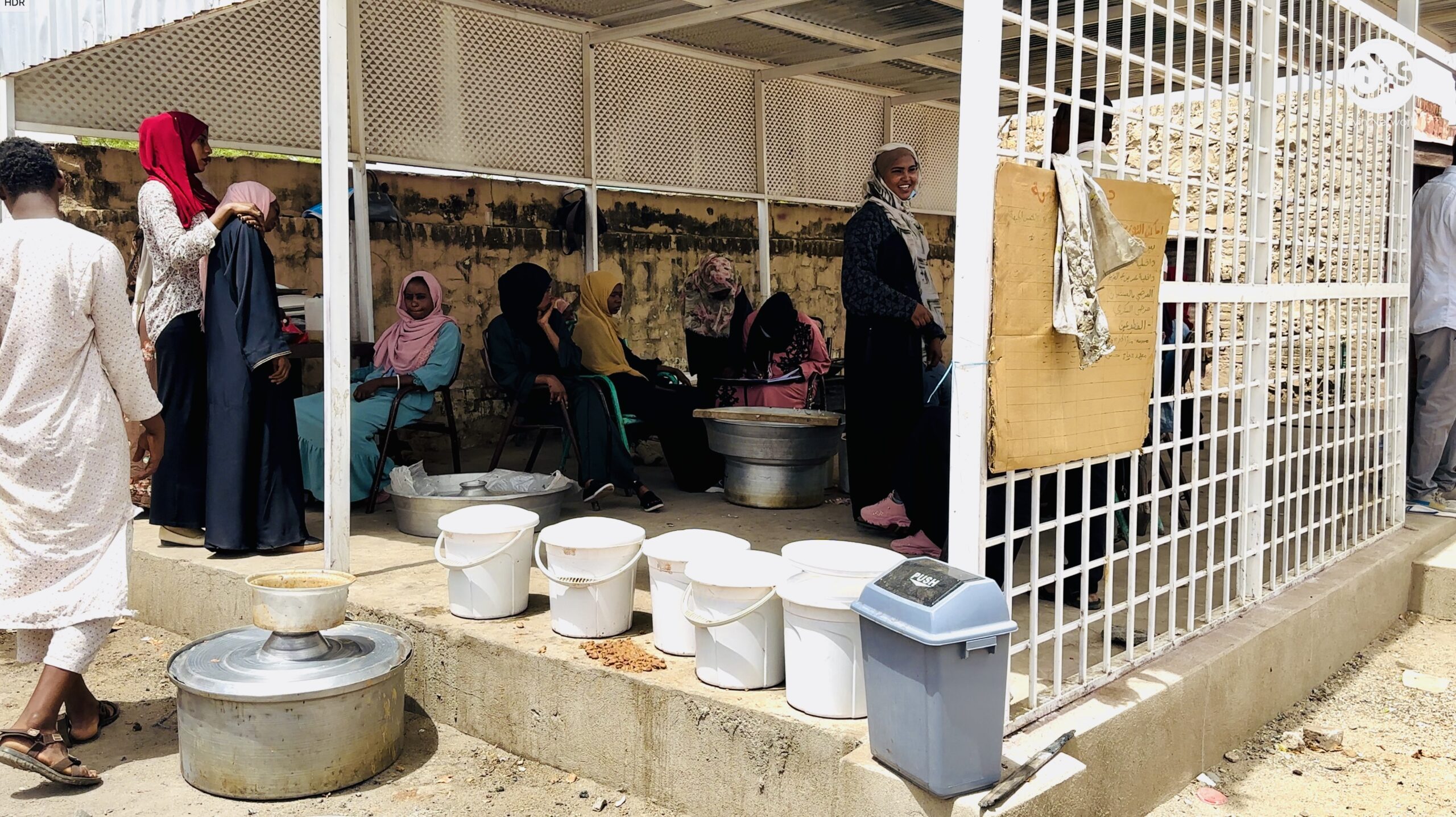
History of the ERRs
The roots of the Emergency Response Rooms emanate from the Resistance Committees established during the anti-military protests that eventually led to the toppling of former dictator Omar al-Bashir in April 2019. As government military authorities continued to target protestors, makeshift emergency medical operations were set up on an ad hoc basis to treat the wounded. “The idea of emergency rooms began as an initiative by young men and women who sought to provide assistance to their communities,” says Ahmed Yasser, a member of the Al-Hassahissa Resistance Committee. “All the initiators were members of the Resistance Committees.” During the Covid-19 pandemic in 2020, the ERRs played a critical role in public health awareness, disinfecting hospitals, and distributing sanitisers, essential medicines, and other necessary humanitarian supplies.
Over time, these grassroots efforts expanded, becoming an essential part of the community’s response to crises. Amidst the ongoing conflict, the ERRs have adapted to the new challenges, developing community kitchens where hunger prevails and medical support for those caught up in the fighting—acting as a lifeline in areas where international actors have struggled to access.
“Over time, the vision emerged among humanitarian workers that ERRs should play a primary humanitarian role, becoming active in responses to environmental or humanitarian disasters and delivering essential services to affected individuals—all supported by local citizens and some national organisations,” says Bahri-Khartoum ERR member Ahmed Moshin. “Despite the challenges posed by the war, the Emergency Response Rooms have managed to continue their work for more than 18 months since the outbreak of the ongoing war, relying on limited resources.”
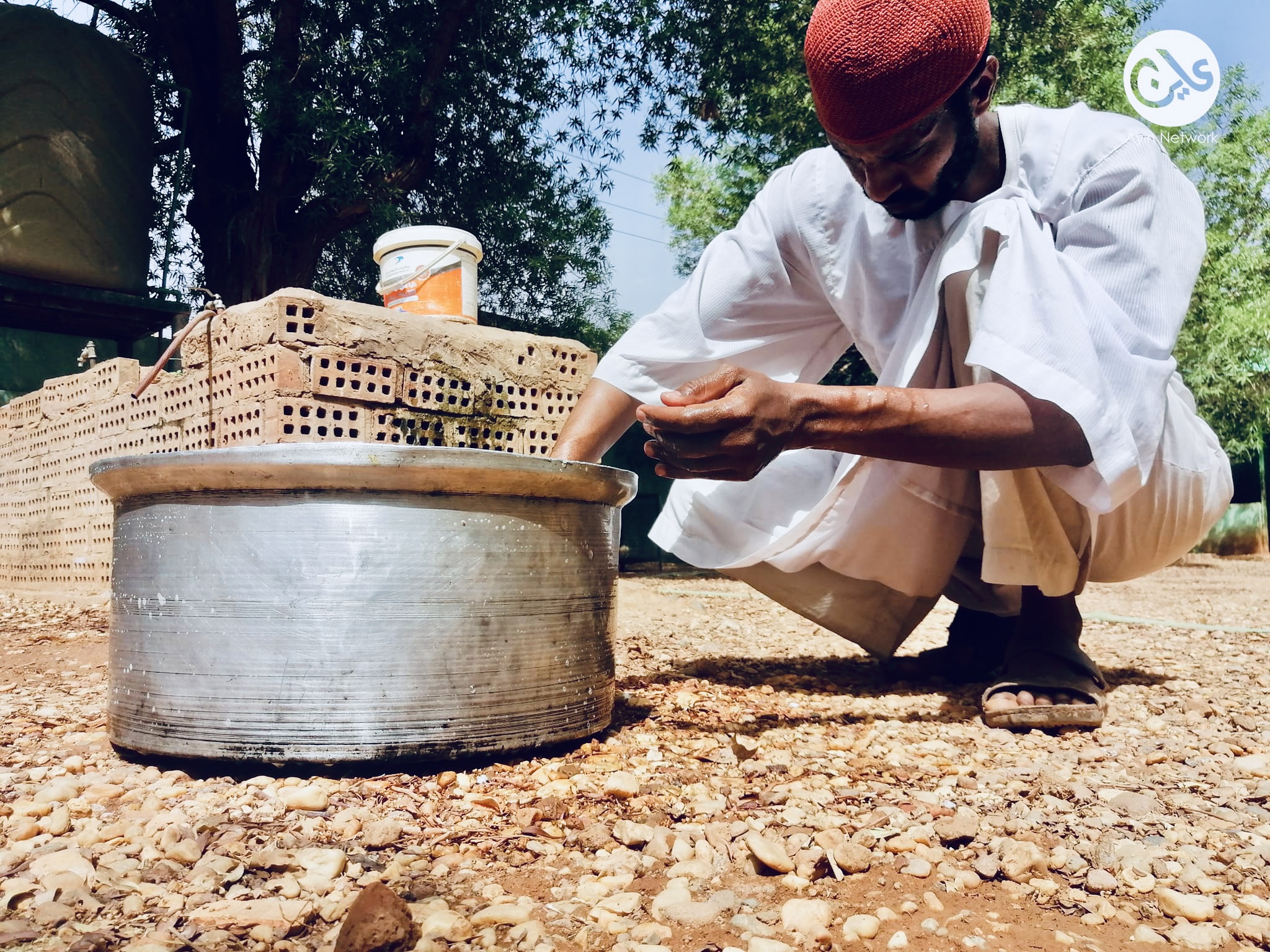
Diaspora support
The ERRs began with grassroots support, receiving contributions from Sudanese people both inside and outside the country. Since then, the ERRs have received support from national and international humanitarian organisations, Yasser told Ayin, but the Sudanese diaspora remains their mainstay of support.
“They are relying on the diaspora for their core source of funding,” says Kholood Khair, the director of the think tank Confluence Advisory. “And because the diaspora understands better than any donor what these people are up against, they’re able to provide funding very quickly and also for that funding to be as flexible as possible.”
Khair believes that local groups are more impactful because they secure local access that international organisations often struggle to achieve. “Traditional aid structures struggle to get access, [but] because these actors [ERRs] are local, they’re able to secure local access agreements with whomever the sides that are there, whether it’s the army or RSF or the joint forces.” While international aid organisations or the UN struggle for access, Khair adds, “These mutual aid groups have really been able to meet the moment, meet the urgency, and meet the needs in a way that no other response has done.”
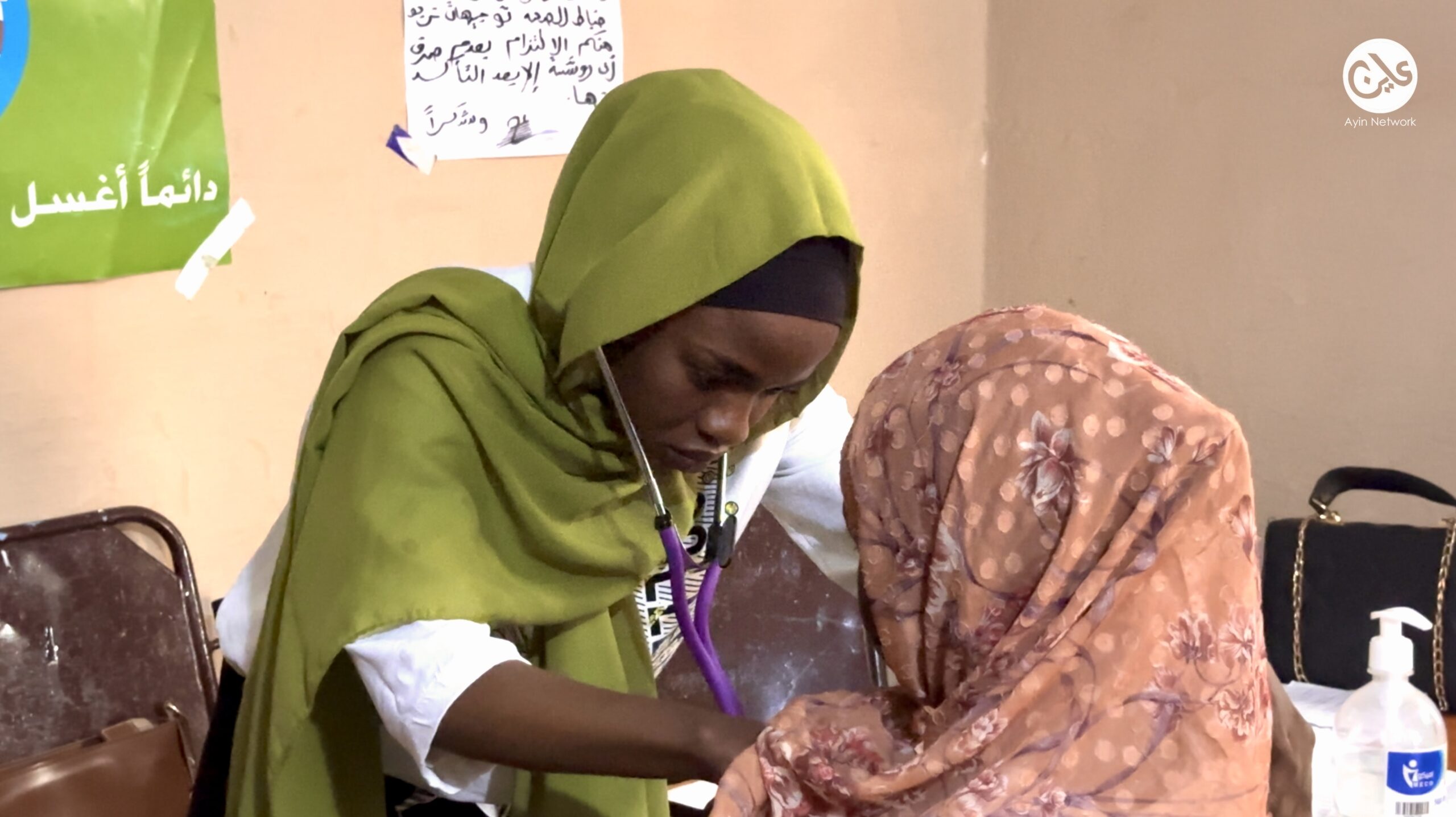
Global recognition
Mathilde Vu, the spokesperson for the Norwegian Refugee Council (NRC), agrees. “I have to say that those local volunteer groups are really sometimes the only way for vulnerable populations just to have a meal today,” she said. Vu believes the international community was slow to recognise the role of the ERRs but is now supporting their efforts more and more. On 3 October, the director of the Peace Research Institute Oslo, Henrik Urdal, announced the ERRs as nominees for the 2024 Nobel Peace Prize in recognition of their humanitarian work. “Our nomination for the Nobel Peace Prize is a global acknowledgement of the tremendous role volunteers play in alleviating civilian suffering during conflicts,” Yasser said. “It sends a strong message to the world about the importance of supporting these community-led initiatives, while also calling for more international support to ensure the continuity of these efforts amid funding shortages and security challenges.”
Local ERR volunteers can confirm that they are, albeit slowly, starting to receive more support from the international community. But this support, Vu says, must adapt to the differences between these groups and NGO’s, especially in terms of funding approaches. “We need to make sure that there is sustained but also flexible funding allocated to these groups. These are not NGOs,” Vu said. “They do not have the same capacity to produce reports like we do,” she added, “it’s for the international community to adapt, not the other way around.”
In many ways, Khair adds, converting the ERRs into NGOs could undermine their effectiveness since they can operate differently than other humanitarian organisations. “They are able to negotiate access locally; they are able to buy from local markets; they are able to make their activities as flexible as needs be, very unlike NGOs.”
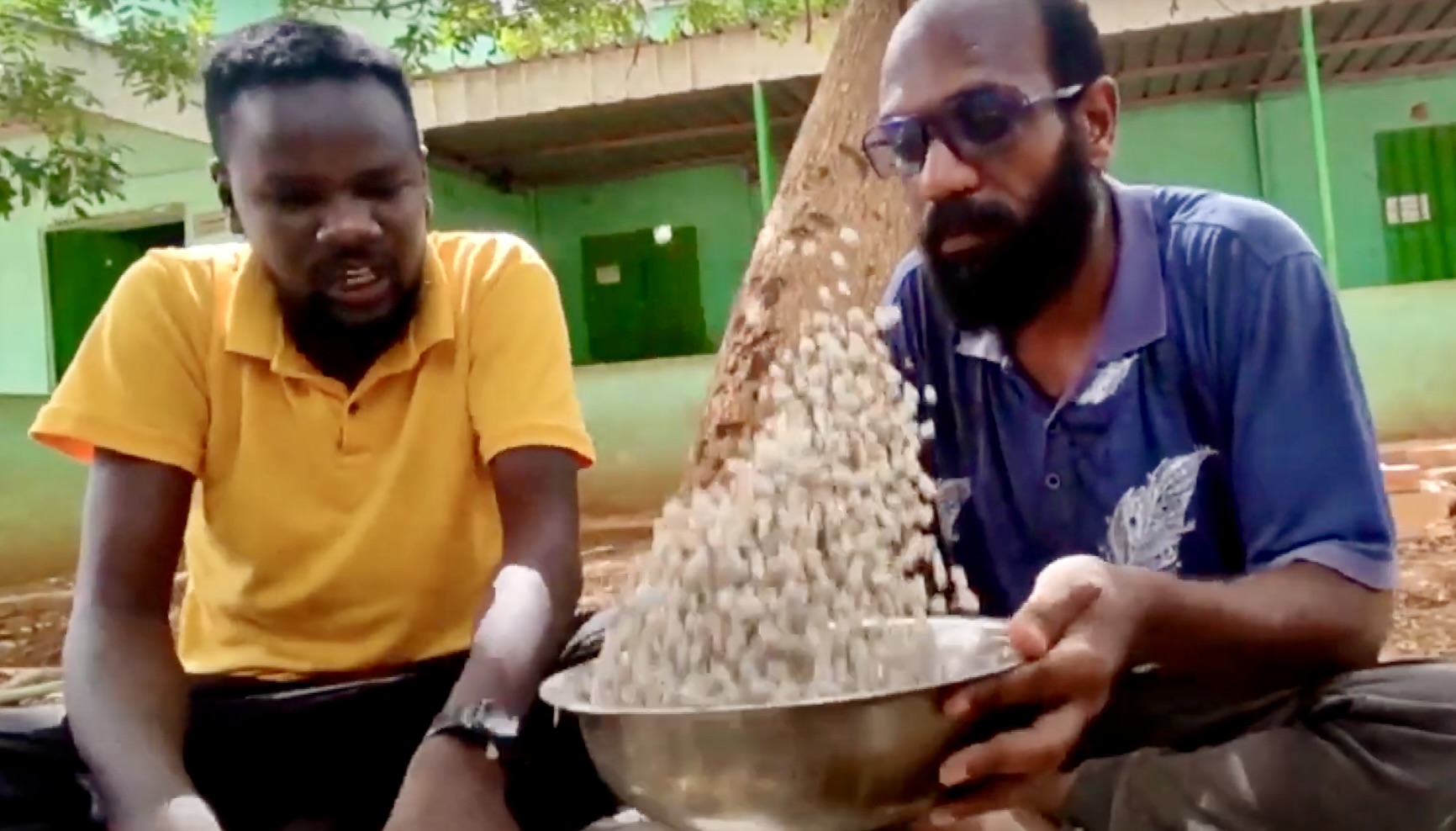
Daily threats
Despite the increased recognition and support from international actors, local ERR representatives told Ayin that the threats and challenges linked to their work are ever-present. Both warring parties target the local volunteers linked to the ERRs, several ERR members told Ayin, with many emphasising the urgent need for protection from the international community. Like many of his colleagues, the RSF detained Ahmed Yasser for several hours in Al-Hassahissa, compelling him to flee the country due to the escalating threats against him.
“People need to understand that when the volunteer is being looted, it’s not only an individual; it’s an entire community that pays the price,” Vu said. “Because what it means is that the local kitchen has to be stopped for a few weeks. So it’s really important that the humanitarian community takes the protection of the local responders as a real priority.” Khair explained that ERRs members have requested protection under international laws, recognising their status as aid workers. “They want protection, primarily through the recognition of them as humanitarian access actors, so that they are given the same protection that other humanitarian actors are given.”
Despite the huge challenges and threats, Yasser adds, the ERR volunteers remain committed to helping their local communities. “The love for helping others and volunteering to alleviate people’s suffering and to at least be a seed of hope during this war—this is what keeps us resilient throughout this period.”


